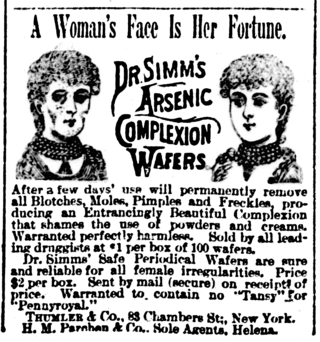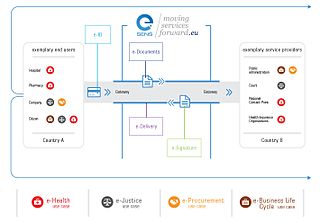
Three European Union schemes of geographical indications and traditional specialties, known as protected designation of origin (PDO), protected geographical indication (PGI), and traditional speciality guaranteed (TSG), promote and protect names of agricultural products and foodstuffs, wines and spirits. Products registered under one of the three schemes may be marked with the logo for that scheme to help identify those products. The schemes are based on the legal framework provided by the EU Regulation No 1151/2012 of the European Parliament and of the Council of 21 November 2012 on quality schemes for agricultural products and foodstuffs. This regulation applies within the EU as well as in Northern Ireland. Protection of the registered products is gradually expanded internationally via bilateral agreements between the EU and non-EU countries. It ensures that only products genuinely originating in that region are allowed to be identified as such in commerce. The legislation first came into force in 1992. The purpose of the law is to protect the reputation of the regional foods, promote rural and agricultural activity, help producers obtain a premium price for their authentic products, and eliminate the unfair competition and misleading of consumers by non-genuine products, which may be of inferior quality or of different flavour. Critics argue that many of the names, sought for protection by the EU, have become commonplace in trade and should not be protected.
Anti-competitive practices are business or government practices that prevent or reduce competition in a market. Antitrust laws ensure businesses do not engage in competitive practices that harm other, usually smaller, businesses or consumers. These laws are formed to promote healthy competition within a free market by limiting the abuse of monopoly power. Competition allows companies to compete in order for products and services to improve; promote innovation; and provide more choices for consumers. In order to obtain greater profits, some large enterprises take advantage of market power to hinder survival of new entrants. Anti-competitive behavior can undermine the efficiency and fairness of the market, leaving consumers with little choice to obtain a reasonable quality of service.

Jean-Claude Juncker is a Luxembourgish politician who was the 23rd prime minister of Luxembourg from 1995 to 2013 and 12th president of the European Commission from 2014 to 2019. He also was Finance Minister from 1989 to 2009 and President of the Eurogroup from 2005 to 2013.

False advertising is the act of publishing, transmitting, or otherwise publicly circulating an advertisement containing a false claim, or statement, made intentionally to promote the sale of property, goods, or services. A false advertisement can be classified as deceptive if the advertiser deliberately misleads the consumer, rather than making an unintentional mistake. A number of governments use regulations to limit false advertising.
A parallel import is a non-counterfeit product imported from another country without the permission of the intellectual property owner. Parallel imports are often referred to as grey product and are implicated in issues of international trade, and intellectual property.

Microsoft Corp. v. Commission is a case brought by the European Commission of the European Union (EU) against Microsoft for abuse of its dominant position in the market. It started as a complaint from Sun Microsystems over Microsoft's licensing practices in 1993, and eventually resulted in the EU ordering Microsoft to divulge certain information about its server products and release a version of Microsoft Windows without Windows Media Player. The European Commission especially focused on the interoperability issue.

The Unfair Commercial Practices Directive 2005/29/EC regulates unfair business practices in EU law, as part of European consumer law. It requires corresponding laws to be passed that incorporate it into each member state's legal system. It is intended to provide a level playing field in the single market, reducing trade barriers.

Toy safety is the practice of ensuring that toys, especially those made for children, are safe, usually through the application of set safety standards. In many countries, commercial toys must be able to pass safety tests in order to be sold. In the U.S., some toys must meet national standards, while other toys may not have to meet a defined safety standard. In countries where standards exist, they exist in order to prevent accidents, but there have still been some high-profile product recalls after such problems have occurred. The danger is often not due to faulty design; usage and chance both play a role in injury and death incidents as well.

The Executive Vice President of the European Commission for A Europe Fit for the Digital Age is an Executive Vice President of the European Commission responsible for media and information issues such as telecoms and IT. The current officeholder is Margrethe Vestager since December 2019.
Consumer protection is the practice of safeguarding buyers of goods and services, and the public, against unfair practices in the marketplace. Consumer protection measures are often established by law. Such laws are intended to prevent businesses from engaging in fraud or specified unfair practices to gain an advantage over competitors or to mislead consumers. They may also provide additional protection for the general public which may be impacted by a product even when they are not the direct purchaser or consumer of that product. For example, government regulations may require businesses to disclose detailed information about their products—particularly in areas where public health or safety is an issue, such as with food or automobiles.
The concept of the informed consumer is fundamental in the law of the European Union. Since the European Council Resolution of 14 April 1975, one of the primary objectives of the European Community, and then the European Union, has been the provision of information to consumers. The rationale is that market actors are enabled to make better choices when they are informed and have a greater capacity to understand the importance of their market actions and choices.
Counterfeit consumer goods—or counterfeit, fraudulent, and suspect items (CFSI)—are goods, often of inferior quality, made or sold under another's brand name without the brand owner's authorization. The colloquial terms knockoff or dupe (duplicate) are often used interchangeably with counterfeit, although their legal meanings are not identical.
Rewe-Zentral v Bundesmonopolverwaltung für Branntwein (1979) Case C-120/78, popularly known as Cassis de Dijon after its subject matter, is an EU law decision of the European Court of Justice. The Court held that a regulation applying to both imported and to domestic goods that produces an effect equivalent to a quantitative import restriction is an unlawful restriction on the free movement of goods. The case is a seminal judicial interpretation of article 34 of the Treaty on the Functioning of the European Union. In the same ruling, the Court established the so-called rule of reason, allowing non-discriminatory restrictive measures to be justified on grounds other than those listed in article 36 TFEU.
Sustainable products are products who are either sustainability sourced, manufactured or processed that provide environmental, social and economic benefits while protecting public health and environment over their whole life cycle, from the extraction of raw materials until the final disposal.

Biljana Borzan is a Croatian physician and politician who has been member of the European Parliament for Croatia since 1 July 2013, having been elected to the position at the 2013, 2014 and 2019 elections. She is a member of the center-left Social Democratic Party of Croatia (SDP) and serving as the Vice President of the Socialists & Democrats in the European Parliament with the portfolio "New Economy that works for all" in the Ninith legislature.

The Juncker Commission was the European Commission in office from 1 November 2014 to 30 November 2019. Its president was Jean-Claude Juncker, who presided over 27 other commissioners. In July 2014, Juncker was officially elected to succeed José Manuel Barroso, who completed his second five-year term in that year.

The term digital single market refers to the policy objective of eliminating national or other jurisdictional barriers to online transactions, building on the common market concept designed to remove trade barriers in other commercial fields.

The Capital Markets Union (CMU) is an economic policy initiative launched by the former president of the European Commission, Jean-Claude Juncker in the initial exposition of his policy agenda on 15 July 2014. The main target was to create a single market for capital in the whole territory of the EU by the end of 2019. The reasoning behind the idea was to address the issue that corporate finance relies on debt (i.e. bank loans) and the fact that capital markets in Europe were not sufficiently integrated so as to protect the EU and especially the Eurozone from future crisis. The Five Presidents Report of June 2015 proposed the CMU in order to complement the Banking union of the European Union and eventually finish the Economic and Monetary Union (EMU) project. The CMU is supposed to attract 2000 billion dollars more on the European capital markets, on the long-term.

The Digital Markets Act (DMA) is an EU regulation that aims to make the digital economy fairer and more contestable. The regulation entered into force on 1 November 2022 and became applicable, for the most part, on 2 May 2023.








